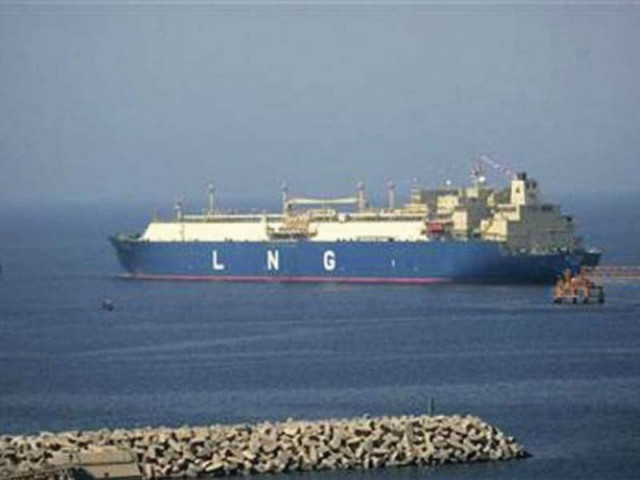LNG supply: ECC may allow new CNG licences
Govt has permitted LNG import by private sector to utilise capacity of 2nd terminal

As the private sector is gearing up to import liquefied natural gas (LNG), the Economic Coordination Committee (ECC), in its meeting scheduled for October 7, is likely to allow the grant of new compressed natural gas (CNG) filling station licences based on LNG supply.
The government has already permitted the private sector the import of LNG in a bid to utilise full capacity of the second LNG terminal, which has remained underutilised in the past couple of years due to power producers’ reluctance to purchase and consume imported gas.
Now, full capacity of the terminal will be utilised, resulting in a lower tolling fee for the consumers.
Special Assistant to Prime Minister on Petroleum Nadeem Babar had said at a conference organised by Universal Gas Distribution Company (UGDC), set up by the CNG industry, that Pakistan’s import bill would be reduced by Rs600 billion when the private sector would start importing LNG.
Sources said the Petroleum Division sent a summary to the cabinet, seeking permission for grant of new CNG station licences based on LNG supply as the private sector had been allowed LNG import.
The government can save Rs97 billion over the next 12 years by handling 150 million cubic feet per day (mmcfd) of additional LNG at the second LNG terminal, industry sources say. UGDC Chief Executive Officer Ghayas Paracha has praised the government for facilitating the private sector in LNG import, insisting that the duration of load-shedding will go down in winter if the private sector is able to import LNG.
“The CNG sector will not only get a boost economically but gas companies will also benefit as they will be able to minimise gas load in winter,” Paracha said.
The Petroleum Division recalled that the federal cabinet, in its meeting held on April 12, 2017, while reviewing a summary submitted by the ministry, had eased the moratorium on new gas connections in the wake of LNG import.
Therefore, “public gas utilities are now in a position to provide new gas connections, inter alia, to CNG sector applicants based on LNG supply,” it said.
Furthermore, the private sector is also going to import LNG for onward supply to CNG filling stations and burden on the government to ensure gas supply to this sector is also shifting.
In addition to that, CNG price fixing was deregulated by the government in 2016 and now it relies on market forces. However, CNG is still cheaper than petrol in terms of per million British thermal units (mmbtu).
Keeping in view the facts, the Petroleum Division proposed that permission for issuing new CNG licences based on LNG supply may be granted.
The Oil and Gas Regulatory Authority (Ogra) would incorporate terms and conditions for LNG-based CNG licences including that the licence was only for LNG supply and the licensee could not claim its conversion to gas produced in the country, it said.
Pursuant to the Ogra Ordinance 2002 and provisions of CNG (Production and Marketing) Rules 1992, the issuance of a CNG licence to any prospective investor/ applicant falls within the ambit of Ogra.
The then caretaker prime minister, while getting a presentation on the power and gas supply situation, directed on January 6, 2008 that new CNG licences, which were in the pipeline, should be held back and CNG connections should not be given except to those who had already imported CNG machines.
Later on April 18, 2011, the then premier imposed a moratorium on the provision of new industrial and commercial gas connections across the country with immediate effect for a period of six months.
Before expiry of the moratorium, the premier on September 30, 2011 while reviewing a summary submitted by the Ministry of Petroleum (now Petroleum Division, Ministry of Energy), approved certain proposals with respect to the CNG sector.
The proposals were conveyed to Ogra on October 4, 2011 for taking necessary action. Consequently, Ogra issued marketing licences to prospective applicants.
Published in The Express Tribune, October 6th, 2020.
Like Business on Facebook, follow @TribuneBiz on Twitter to stay informed and join in the conversation.


















COMMENTS
Comments are moderated and generally will be posted if they are on-topic and not abusive.
For more information, please see our Comments FAQ